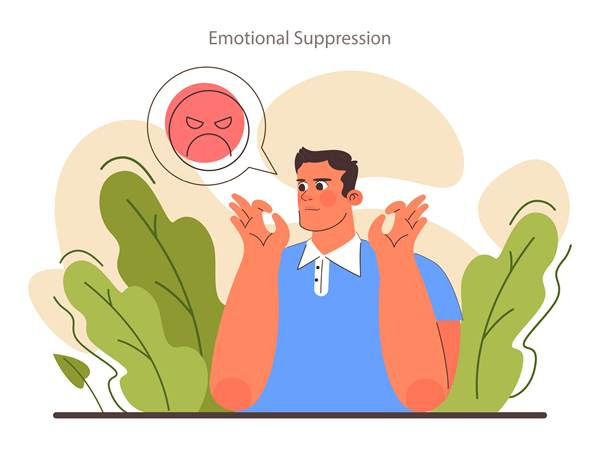
In a time of rising self-help gurus, endless motivational quotes on social media, and wellness apps promising us unending optimism, the mantra of “positive thinking” has become the norm. But, is a continuous focus to positivity ultimately detrimental to our mental health?
I, for one, have been more than active in observing the intersections of human behaviour, religious/spiritual traditions, and history to see how societal trends can shape our minds. And these trends are not always for the best.
In this article, I explore the disadvantages of emphasizing positive thinking too much. And yes, there’s a name for this, “toxic positivity.” What a contradictory term!
Additionally, I will also explore the field of positive psychology, a legitimate powerhouse, which provides a better foundation for mental health.
The Benefits of Positive Thinking

So, is positive thinking flawed?
Well, at its core, it involves reframing challenges in a way that leans towards hope and action. That’s not bad, right?
Research shows that maintaining an optimistic outlook can lead to tangible benefits, including reduced stress levels and improved physical health. Some studies have linked positive emotions to lower blood pressure and enhanced immune function.
Positive thinking can boost motivation and resilience, and help us navigate life's hurdles more effectively.
If we move into a professional setting, optimistic teams will perform better, as positivity encourages creativity and problem-solving. Imagine trying to find solutions when you are depressed or thinking negatively about the task at hand.
However, as with everything, the key lies in moderation. Because when positive thinking becomes a rigid mandate, it crosses into dangerous territory ...
How Toxic Positivity Harms Psychology

Now, let’s have a look at “toxic positivity”.
Toxic positivity refers to the excessive and ineffective overgeneralization of a happy, optimistic state across all situations, but it comes at the expense of acknowledging genuine emotions and sometimes reality itself.
It manifests in phrases like "Just stay positive!" or "Good vibes only". Yes, you will say that these phrases are well-intentioned, BUT, they can invalidate real struggles and lead to harmful psychological outcomes. In other words, we cannot hide from ourselves.
We all know that the ideal approach to negative emotions is to understand and dissolve them through processing and reflection. This process involves: a) acknowledging these feelings, b) exploring their roots, and c) allowing them to dissipate through our understanding, developing emotional growth and resilience in the process. This is no different to the following quote:
When you throw light (consciousness) on darkness (subconscious/unconscious), darkness disappears.
Research, such as studies on mindfulness-based interventions, supports that processing emotions in this way can reduce stress, enhance self-awareness, and promote long-term mental well-being. For instance, practices like journaling allow us to sit with our emotions, understand their triggers, and integrate them into a broader sense of self, reducing their intensity over time. That’s a win win!
A secondary approach is to control negative emotions and limit their immediate impact. Techniques like cognitive reappraisal, where one reframes a situation to lessen its emotional intensity, can also be effective. For example, viewing a job loss as an opportunity for growth can mitigate distress while maintaining emotional authenticity.
This differs starkly from two problematic alternatives: letting negative emotions express themselves unchecked or suppressing them entirely.
Unrestrained expression, such as venting anger without reflection, will reinforce and strengthen negative emotional patterns over time, most certainly escalating conflicts or deepening distress.

Conversely, , that is ignoring or pushing emotions deep within, is equally harmful. Studies show that emotional suppression increases stress, elevates cortisol levels, and can lead to emotional "explosions" later, manifesting as anxiety, depression, or burnout or irrational (emotional) decisions. Suppressed emotions don’t disappear; they fester, like worms, often resurfacing in unhealthy ways, such as physical health issues or sudden outbursts.
For example, dismissing pain during grief or trauma can raise feelings of isolation and shame, hindering healing. Imagine someone grieving a loved one being told to "look on the bright side." This invalidation can make them feel their pain is illegitimate, delaying emotional processing and potentially leading to complicated grief.
Moreover, toxic positivity sets unrealistic expectations, leading to self-blame when challenges persist, as we may feel we have failed to maintain the "right" mindset.
This is particularly damaging in high-pressure environments, where the pressure to stay positive can exacerbate burnout, as we push through exhaustion without addressing underlying issues.
Moving now in societal contexts. Toxic positivity can perpetuate inequality by implying personal attitude alone overcomes systemic barriers. For instance, telling someone in poverty to "just stay positive" ignores the structural realities they face, deepening their sense of powerlessness…
A Balanced Framework Through Positive Psychology

To counter the pitfalls of unchecked positivity, let's turn to positive psychology. To contrast positive thinking, positive psychology, which is a scientific field, emphasizes building strengths and well-being without denying life's complexities. It was founded by Martin Seligman in the late 1990s during his presidency of the American Psychological Association. Positive psychology shifts the focus from merely treating mental illness to cultivating what makes life worth living.
Seligman, often called the "father of positive psychology," introduced concepts like "authentic happiness" and the PERMA model, which outlines five pillars of well-being:
Positive Emotions
Engagement
Relationships
Meaning
Accomplishment
Unlike toxic positivity, which demands superficial happiness, positive psychology encourages realistic optimism, acknowledging negatives while promoting growth.
As an example, techniques such as gratitude journaling or mindfulness practices are based on positive psychology and have been shown to improve life satisfaction and resilience.
Seligman's work includes resilience training that is implemented for the U.S. Army, which teaches soldiers to reframe their setbacks in a more constructive manner without turning off their emotions. The goal is to provide a sense of emotional flexibility, which allows each person to feel the entire range of emotions possible while pursuing fulfilment.
Positive psychology gives us the tools for sustainable mental health. We only need to make sure that our positivity is evidence-based and not delusional ...
Striking a Balance

So, is it wrong to focus on positive thinking?
Not exactly, but if you're chasing it without balance, it may harm your psychology. How?
By promoting denial and disconnection from what you're actually feeling. And that denial rarely turns out in a positive way.
Eventually, deep down inside you, you will start to feel stuck, and that upheaval creates inner tension that will show up in a multitude of ways, sometimes even as some form of phobia, for example claustrophobia.
Toxic positive thinking can create a hidden monster deep inside you. The more you ignore it, the bigger that monster grows, in its contempt for your refusal to confront unpleasant truths. Eventually it will find a way to come through, leading to anxiety, irrational fears, or even emotional breakdowns.
The way to avoid that monster, no matter how discomforting it is, is to face reality.
The antidote? Emotional authenticity: the act of accepting all feelings. And then using the framework of positive psychology to build resilience.
Practices such as self-compassion, treating yourself with kindness during difficult times, and cognitive reappraisal (reframing without denial) are great interventions.
In our modern world, where AI and technology create echo chambers of optimism, we need to cultivate discernment.
History reminds us that societies do not thrive through blind positivity but rather honest reflection and adaptive growth.
Remember, that true well-being comes not through human experience but rather embracing all of what it is to be a human, not just the joyful side.


Unlearning and Objectivity in Science : In my first semester of biology and chemistry as a German student, we were taught a brutal lesson in objectivity: to strip our language of familiar words and expressions. These everyday terms are laden with preconceived notions and emotional associations that can blur our understanding of the subject matter right in front of us. This process is a form of Un-Learning, a rigorous practice aimed at transforming us into pragmatic Stoics in the broadest sense. .
Everything in the cosmos is like a loaded gun—it holds an inherent potential that will eventually be unleashed, with or without an external trigger. A scientist's awareness of this potential is akin to the vigilance of a firefighter rushing up the World Trade Center; it requires a state of constant, focused alertness to the fundamental nature of reality.
In the face of this reality, we must be prepared for the worst-case scenario. The phrase "Memento Mori" - remember you will die - is not about morbid fear - but about accepting the inherent impermanence and neutrality of existence. Things are neither positive nor negative; they simply are.
The Risk of the "Zero-Dimensional Man" -This philosophical and scientific detachment, however, carries a significant risk. As we "devolve" from the One-Dimensional Man described by Herbert Marcuse - a person defined by consumerism and a lack of critical thought - to what could be called the "Zero-Dimensional Man" of the "Quantum Cult," we risk becoming mere sheeple in a technological farm. In this state, we are so focused on pure, objective data that we lose our humanity, our emotional depth, and our ability to question our own existence. We become cogs in a machine, constantly seeking encouragement and validation for our compliance.
The ultimate goal is not to become a machine but to remain a human being with the awareness of a scientist. A Mind Clearing process…